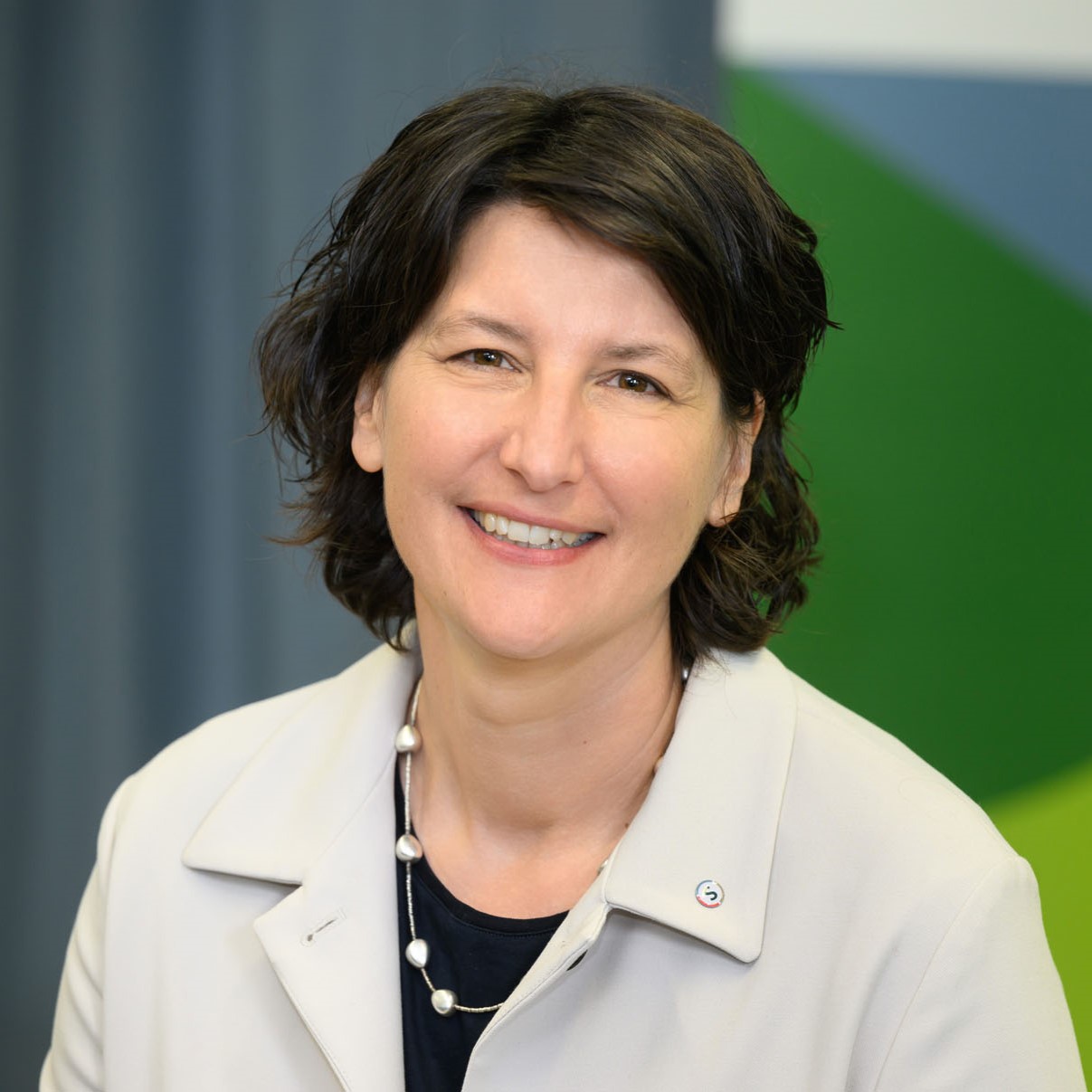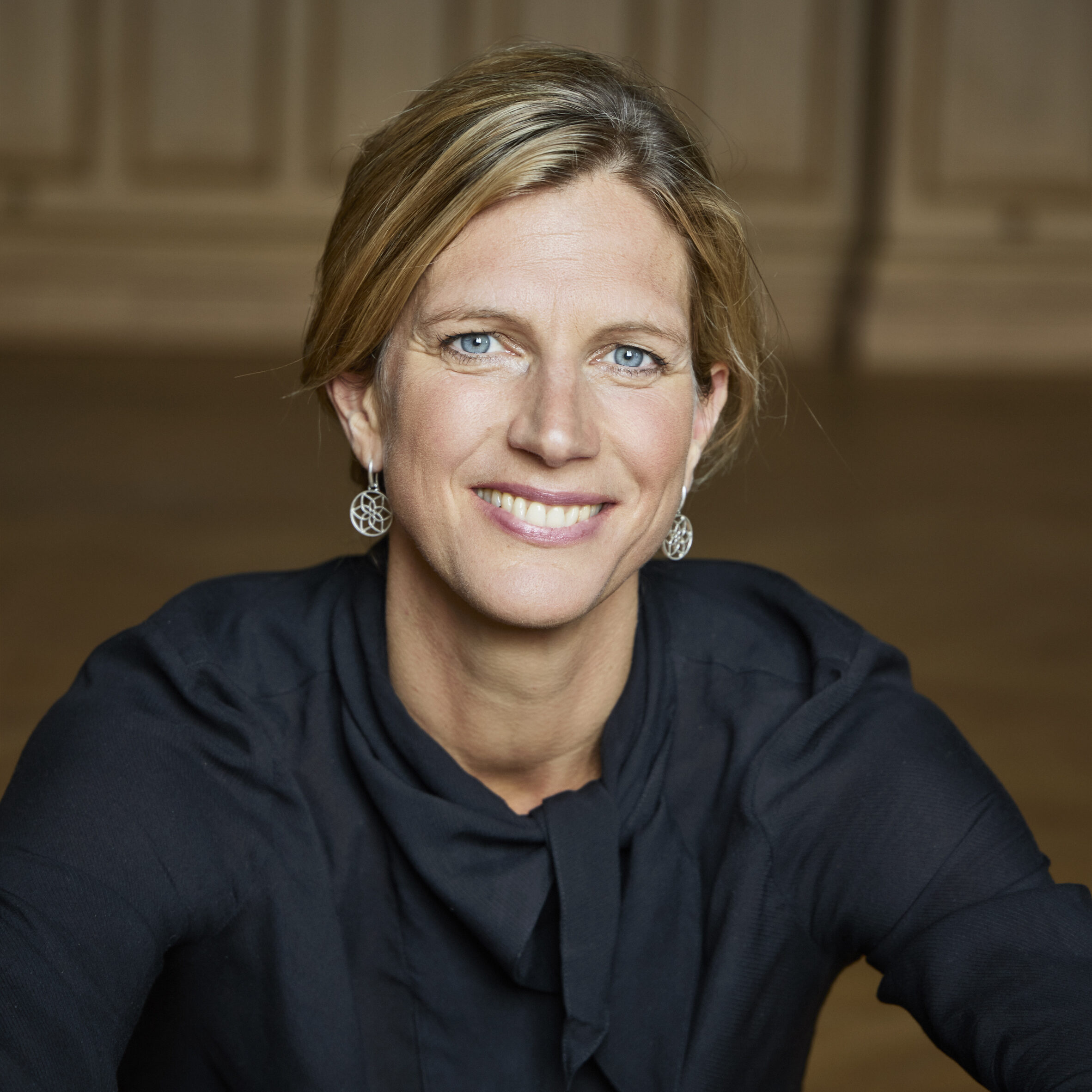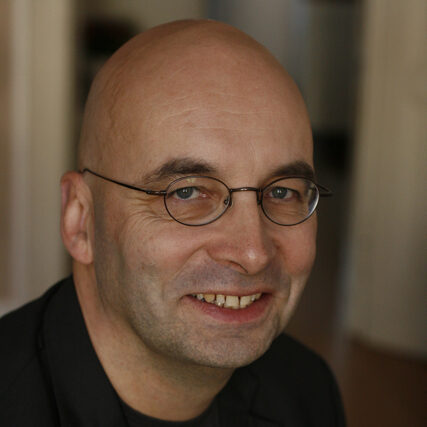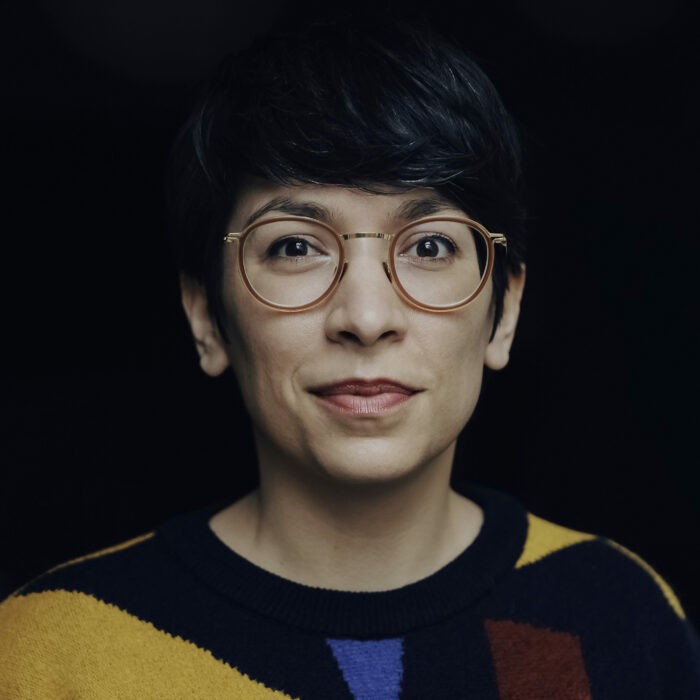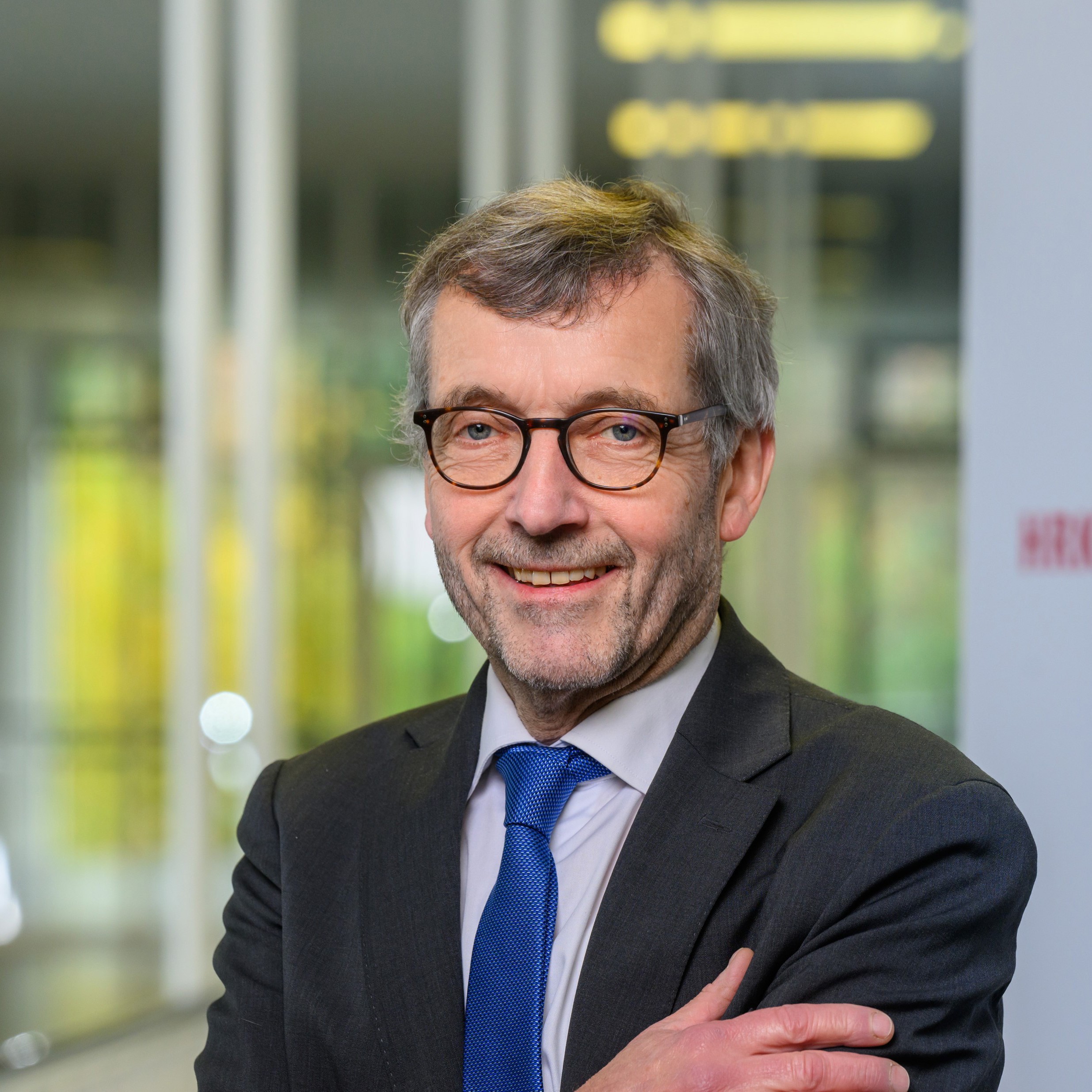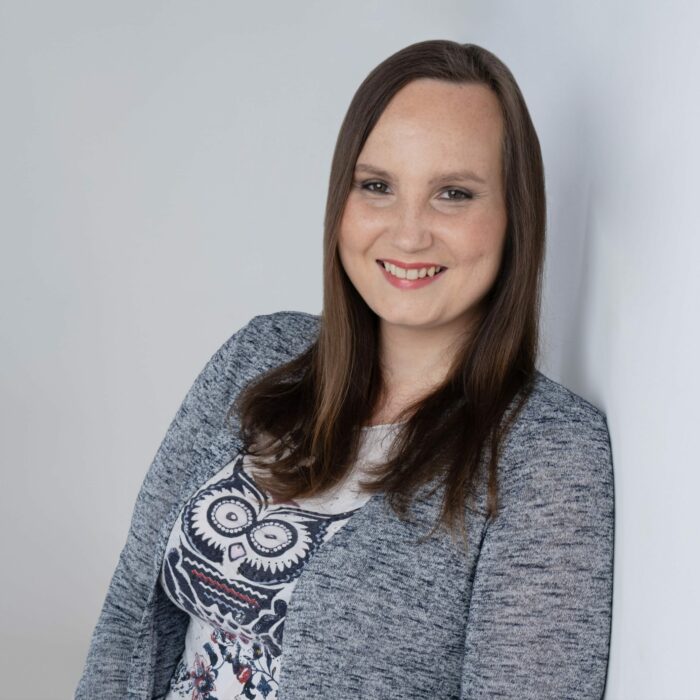Mainstage-Event Berlin
The Mainstage and the Community-Stage at the University:Future Festival 2024 in Berlin focused on good futures for (digital) higher education. In addition to concrete problems and practical solutions, we discussed fundamental visions, narratives and values for shaping a future-proof academic education.
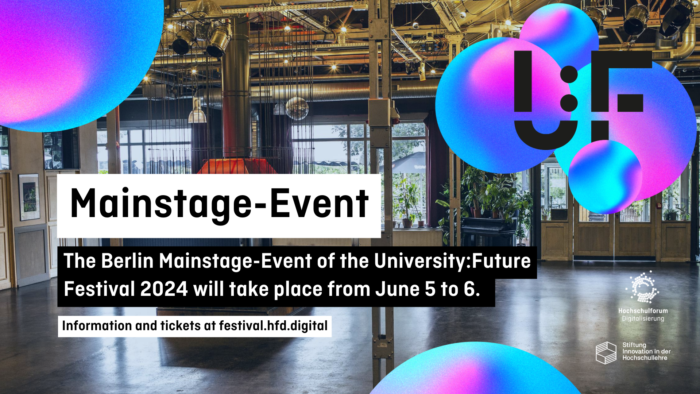
Key dates: Mainstage and Community-Stage offer a two-day programme from June 05 to 06. On both days, the programme starts at 09:00 and ends at 17:45. The third day of the festival will be purely digital. For further information, take a look at our stage overview.
Location: Festsaal Kreuzberg, Am Flutgraben 2, 12435 Berlin.
Keynote speakers
Stage programme
Meetups & workshops
Experience:Space
On demand
Keynote speakers (selection)
Here you will find all keynote speakers of the Mainstage 2024.
Stage programme
Mainstage (June 05 and 06)
The University:Future Festival 2024 in Berlin will begin on June 05 at 09 a.m. with an opening on the Mainstage. Together with moderator Zackes Brustik, Oliver Janoschka (Head of HFD) and Cornelia Raue (Managing Director of StIL) will address an opening speech to all participants.
The first day of the festival then awaits you with exciting keynotes from Georgi Dimitrov, Manuel Dolderer, Steve Fuller, Silja Graupe, Armin Himmelrath, Julia Kloiber, Rikke Toft Nørgård, Walter Rosenthal and Nell Watson. The majority of our keynote speakers will be speaking on site. Further contributions, among others a discussion on ”AI in Higher Education: International Perspectives”, provide even more variety. The discussion will be held by Oliver Janoschka, Sue Attwell, Hanna-Mari Puuska, Philipp Schmidt and Bas Smit.
The second day of the festival will also feature a number of keynotes, including from Maja Göpel, Nele Hirsch, Volker Meyer-Guckel, Christian Swertz and Katharina Zweig. You can also take part in the exchange of opinions in the context of further contributions: Andrea Frank (Stifterverband) and Ulrich Müller (Centrum für Hochschulentwicklung) will discuss authentic universities and new forms of tertiary education. A panel with Heike Ekea Gleibs and Julia Schneider will discuss digitalisation narratives. Jonna Korhonen and Hanna Nordlund will also give you an insight into the digitalisation of the Finnish higher education system.
At the end of the Mainstage programme, State Secretary Jens Brandenburg will ceremoniously present the completed group of the HFD’s peer-to-peer strategy consultancy with their certificates of participation.
Community-Stage (June 05 and 06)
On this stage, contributions from the programme call will take place in presence. The programme starts on the first day of the festival at 09:35 and ends at 16:55. You can expect inputs and discussions on topics such as AI, didactics, spatial concepts and teaching-learning settings, futuring and student well-being.
On the second day, the programme starts at 09:00 and ends at 17:45. Follow inputs and discussions on topics such as the future of the campus, student participation, extended reality and learning environments, future skills and sustainable higher education from the perspective of teachers.
You can find the complete stage programme of the Berlin Mainstage and the Community-Stage in our programme overview.
Meetups & workshops
A varied additional on-site programme awaits you when you visit the Mainstage event in Berlin. You have the opportunity to take part in local meetups and workshops and be inspired by (interactive) art in the Experience:Space.
Meetups and workshops on June 05
#Meetup “Tales of Tomorrow: Decoding Cultures for High Community Impact“ (11:40 to 12:45)
#Meetup “Things that happen – the pitfalls of the ordinary“ (13:45 to 14:50)
#Meetup “Future Skills-Narrative: Mythos oder Mission?“ (15:05 to 16:10)
#Workshop “Zukünftige Hochschulwelten – Szenarien und Perspektiven“ (10:20 to 12:20)
#Workshop “Tales of an Inclusive University – Implications for Students“ (13:45 to 15:45)
Meetups and workshops am June 06
#Meetup “Wirkung und Einfluss von Netzwerken im Hochschulumfeld“ (11:40 to 12:45)
#Meetup “Designing the Future of Higher Education with Design Thinking“ (13:45 to 14:45)
#Meetup “Die Zukunft des Feedbacks an der Hochschule: KI und VR als Wegbereiter“ (15:05 to 16:10)
#Workshop “Transformative Skills für Nachhaltigkeit in der Hochschullehre“ (10:20 to 12:20)
#Workshop “KI: Welche Basics brauchen wir alle?“ (13:45 to 14:50)
#Workshop “STEMpowerment Improv Theatre Workshop“ (15:05 to 16:10)
Experience:Space
“A Glimpse into the Rabbit Hole – Exploration of ceramic 3D printing”
Interactive installation: The clay printer enables the rapid translation of digital models into analog objects and can manufacture products for a wide range of applications. The interaction between the clay printer and the visitors serves as access to a very complex technology in order to create an understanding of autonomous and invisible processes and to understand how these complex technologies can be used as tools. By Nikos Probst and Marie-Louise Hilberer.
“Change of perspective – how “normal“ are you?”
Interactive installation: Video surveillance in public spaces is constantly growing and is becoming increasingly automated through so-called “intelligent” surveillance systems. Through an experience-based approach, the “Blickwechsel” installation aims to convey information about automated surveillance systems and stimulate discourse. It is important to weigh up the opportunities and risks and discuss how we would like to use such systems in the future. By Anne Florence Merkle.
“Pepper the teaching robot”
Robotics: At Julius-Maximilians-Universität (JMU) Würzburg, attending tutorials with teaching robot Pepper leads to better grades on average. Students can revise the material from lectures in media informatics. Pepper is an example of the increasing relevance of social robotics. Visitors to the U:FF can get to know Pepper and the innovative teaching concept. By Birgit Lugrin and Melissa Donnermann.
“Moving Sound Pictures: Homage”
VR station: At this station, visitors have the opportunity to interactively explore paintings by well-known and contemporary visual artists through playful activities using VR technology. The “Homage” VR installation on display is a tribute to the friendship, shared respect and admiration between artists who are considered milestones in 20th century art history. By Konstantina Orlandatou.
“Nomadic Dictionary. Nenets.”
VR station: The Nenets Dictionary of a Nomad is a digital encyclopedia of the Nenets way of life and language in the form of an interactive virtual reality learning application. Viewers are familiarised with the basics of the Nenets language and interact with objects from life and elements of the natural landscape. The main focus of the project is to preserve the heritage of the cultural traditions and language of the Nenets, an indigenous people in the north-eastern part of the European part of Russia and north-western Siberia. By Anna Tolkacheva.
“RE:LEARN – Playing for student participation”
Game installation: The project presents an innovative teaching concept and the project results produced by students, which aims to initiate a paradigm shift in (design) teaching. The focus is on the active promotion of student participation and the establishment of a student-centered teaching practice. By Katharina Bellinger and Vanessa Pelger.
“rugs + tales – wall hanging tales of tomorrow”
Participatory installation: What does the future of design teaching look like? How will we teach design in the future? Interactive tapestries explore these questions in the form of typographic messages and sound collages. The content is generated from the material collected and published by the iF Design Foundation as part of its multi-year Open Campus project “Designing Design Education – Impulses for a New Curriculum“ in collaboration with Die Neue Sammlung – Design Museum, Munich. Visitors to the festival can follow the creation process of the hand-knotted carpets. They are invited to collaboratively tuft the “Tales of tomorrow“ carpet, to enter into a personal exchange about the festival’s tales and the lessons for the 21st century and to tie in with the traditionally close relationship between storytelling and handicraft. By Jenny Baese and Joanna Dauner.
“VR Learning Space, come along and try it out!”
VR station: The HFD’s DigitalChangeMakers invite you to test VR applications from various specialist areas. Participants can try out a speech trainer, practice and test chemistry experiments with hazardous substances and take a fascinating journey inside the human body. VR for the medium with which the stories of tomorrow will be told. By Adriane Pelikan and Isabell Bieber.
“Your Generation !”
Interactive installation: There has long been an unnoticed exchange between human and non-human beings. With the advent of ChatGPT, DALL-E2, Midjourney and Supermachine, this is not only changing our everyday lives, but also our art. The seminar “Your Generation !“ explores the inclusion of “intelligent agents“ in our artistic creative process. Siyuan Li presents her interactive magic mirror created at RWTH Aachen University with ComfyUI and Stable Diffusion, “Hey, how are you, what do you want?“. In this multimedia installation, visitors are invited to generate a new identity in real time, have a conversation and be (dis)illusioned using their own sketches and gestures. The project exposes and expands the discourse on creative processes with AI and the resulting narratives and situations will be reflected upon together. The project is supervised by Hannah Groninger, Miro Leon Bucher and Ivo Mayr.
On demand
You can find videos of the Berlin Mainstage and Community-Stage on the YouTube channel of Hochschulforum Digitalisierung.
